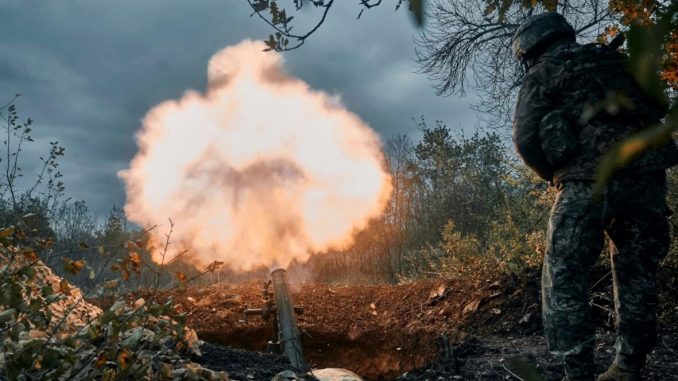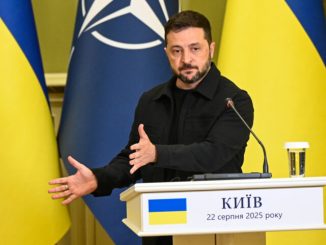
| Published June 23, 2025
As nuclear tensions surge globally, the Kremlin has escalated its rhetoric with a fresh warning aimed squarely at Kyiv. Amid mounting headlines involving nuclear threats and Western involvement in Ukraine, former Russian President Dmitry Medvedev has issued a stark ultimatum: should Ukraine employ a so-called “dirty bomb,” Russia will respond with tactical nuclear weapons. Delivered via Russian state media during the St. Petersburg Economic Forum, the message underscores a renewed phase of nuclear brinkmanship from Moscow, raising fears of a catastrophic escalation in the ongoing conflict.
⚠️ What happened?
At the St. Petersburg Economic Forum (June 21–22), former President Dmitry Medvedev issued a stern warning via Telegram and Russian state media:
-
He issued a specific nuclear threat targeting Ukraine, saying if Kiev uses a “dirty bomb,” “we’ll respond with tactical nuclear weapons”—a “clean bomb”.
-
Medvedev explicitly referenced the Chernobyl exclusion zone as a metaphor for the catastrophic consequences of such escalation.
-
President Putin has aligned with this messaging, emphasizing any substantial Ukrainian provocations will receive a “very harsh” and potentially “catastrophic” response .
Zero Hedge characterizes these statements as part of a deliberate “nuclear signaling campaign”, especially amid Western media’s focus on Iran’s nuclear situation. In other words, the Kremlin is adding yet another thriller to its nuclear narrative—but this time directly focused on Ukraine.
🧭 Why now?
-
There’s been a flurry of nuclear-related headlines, including the U.S. bombing Iranian nuclear infrastructure, persistent discussion around Iran’s ambitions, and a dangerous uptick in Ukrainian “Spider’s Web” drone raids hitting strategic Russian airbases .
-
Russia appears to be ratcheting up the rhetoric in response to Ukraine’s increasingly bold tactics, possibly intended to deter Western aid and pressure Kyiv
 Strategic Gains and Setbacks
Strategic Gains and Setbacks
Russia’s intensifying nuclear rhetoric reflects both perceived gains and significant vulnerabilities in the ongoing war with Ukraine. On one hand, the Kremlin’s nuclear messaging aims to deter Western intervention and project dominance amid growing concerns about NATO’s support for Kyiv. Medvedev’s threats, echoed by Putin, are calculated to intimidate Ukraine and shift the psychological battlefield in Moscow’s favor.
Yet these statements also signal setbacks and insecurities. Ukraine’s deep strikes—particularly drone attacks targeting strategic bomber bases—have exposed gaps in Russia’s air defense and struck at the heart of its nuclear deterrent posture. These operations, like the “Spider’s Web” raids, demonstrate Kyiv’s growing boldness and technological adaptability, which undercuts Russia’s aura of control.
At the same time, Russia’s reliance on public nuclear threats underscores its limited conventional options and declining diplomatic leverage. Rather than a sign of strength, this escalation may reveal a more desperate attempt to reassert fear-based deterrence amid battlefield challenges and growing international isolation.
 Bottom Line:
Bottom Line:
The Kremlin’s latest nuclear threat marks a deliberate intensification of psychological warfare, aimed not only at Ukraine but also at deterring the West from further involvement. While Moscow projects strength through its warnings, the underlying message reveals mounting pressure from successful Ukrainian strikes and evolving Western support. As the war enters a more volatile phase, nuclear rhetoric has become a central tool in Russia’s strategic playbook—raising the stakes for miscalculation, misinterpretation, and escalation on a global scale.
SOURCES: ZEROHEDGE – Amid Media Saturation, Kremlin Decides To Add One More Nuclear Headline, Aimed At Kiev





Be the first to comment